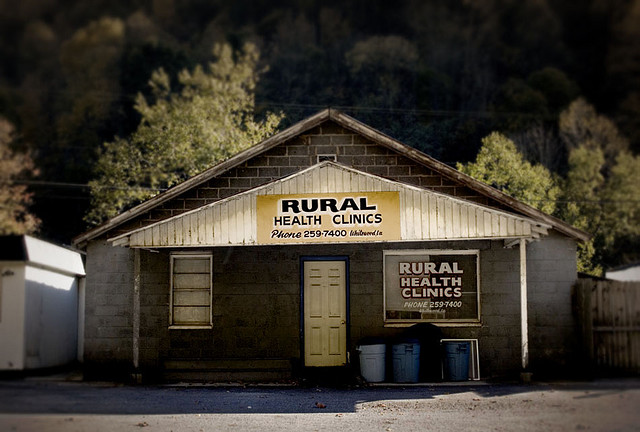PPHF 2015: Preventive Health and Health Services Block Grants - Behavioral Risk Factor Surveillance System (Pacific Jurisdictions) Financed in Part by 2015 Prevention and Public Health Funds
The CDC announces the availability of fiscal year (FY) 2015 funds to implement CDC-RFA-DP15-1513PPHF15, the Behavioral Risk Factor Surveillance System.
The CDC established the BRFSS in 1984 with 15 states participating in monthly data collection.
Since that time, the BRFSS has grown to be the only continuous, state-based, health surveillance system that is conducted nationwide.
The purpose of this FOA is to continue to provide financial and technical assistance to state and territorial health departments to maintain behavioral surveillance through the BRFSS and increase the use of BRFSS data by health departments to inform public health actions to improve health.
The project period for this FOA is five years with a 12-month budget period and an anticipated award date of March 29, 201 5. By the end of the five-year project period, recipients are expected to have achieved the short- and mid-term outcomes that will result from the recipient activities specified within this FOA.
Overview:
Chronic diseases and conditions are among the most common and preventable of all health problems.
As of 2012, about half of all adults have one or more chronic health conditions and one in four has two or more.
These chronic health problems account for the majority of U. S. health care and economic costs and also account for the majority of the leading causes of death in the United States.
State and local governments rely on surveillance data to monitor the prevalence of health risk behaviors that are associated with these chronic health problems as well as with preventable injuries.
This type of surveillance data provide the information that public health practitioners and decision-makers need to inform public health actions aimed at reducing the morbidity and mortality associated with chronic diseases, injuries, and associated health risk behaviors Although health monitoring is being conducted on a national level, in many cases national surveillance data do not adequately describe the health risk behaviors and health status of populations in a state.
In addition, there is growing demand for data that corresponds with smaller, sub-state geographic areas such as metropolitan statistical areas and counties.
Therefore, state- and sub-state level surveillance data are needed to better understand and address the health status, health risk behaviors, and health disparities within states across the nation.
The CDC established the BRFSS in 1984 with 15 states participating in monthly data collection.
Since that time, the BRFSS has grown to be the only continuous, state-based, health surveillance system that is conducted nationwide.
The purpose of this FOA is to continue to provide financial and technical assistance to state and territorial health departments to maintain behavioral surveillance through the BRFSS and increase the use of BRFSS data by health departments to inform public health actions to improve health.
The project period for this FOA is five years with a 12-month budget period and an anticipated award date of March 29, 201 5. By the end of the five-year project period, recipients are expected to have achieved the short- and mid-term outcomes that will result from the recipient activities specified within this FOA.
Overview:
Chronic diseases and conditions are among the most common and preventable of all health problems.
As of 2012, about half of all adults have one or more chronic health conditions and one in four has two or more.
These chronic health problems account for the majority of U. S. health care and economic costs and also account for the majority of the leading causes of death in the United States.
State and local governments rely on surveillance data to monitor the prevalence of health risk behaviors that are associated with these chronic health problems as well as with preventable injuries.
This type of surveillance data provide the information that public health practitioners and decision-makers need to inform public health actions aimed at reducing the morbidity and mortality associated with chronic diseases, injuries, and associated health risk behaviors Although health monitoring is being conducted on a national level, in many cases national surveillance data do not adequately describe the health risk behaviors and health status of populations in a state.
In addition, there is growing demand for data that corresponds with smaller, sub-state geographic areas such as metropolitan statistical areas and counties.
Therefore, state- and sub-state level surveillance data are needed to better understand and address the health status, health risk behaviors, and health disparities within states across the nation.
Related Programs
Behavioral Risk Factor Surveillance System
Department of Health and Human ServicesPPHF-2012: Health Care Surveillance/Health Statistics Surveillance Program Announcement: Behavioral
Department of Health and Human Services
Agency: Department of Health and Human Services
Office: Centers for Disease Control and Prevention
Estimated Funding: $4,139,260
Office: Centers for Disease Control and Prevention
Estimated Funding: $4,139,260
Obtain Full Opportunity Text:
Additional Information of Eligibility:
None of the funds made available in this title may be used, in whole or in part, to advocate or promote gun control.
Full Opportunity Web Address:
Contact:
Rosalyn BellAII9@cdc.gov
Agency Email Description:
Grants Policy
Agency Email:
AII9@cdc.gov
Date Posted:
2014-11-24
Application Due Date:
2015-08-13
Archive Date:
2015-08-14
Social Entrepreneurship
Spotlight
When it Comes to Social Enterprises, Failure is the Best Platform for Innovation

In the world of social enterprises, failure is a cringe-worthy moment nobody wants to talk about. But, social entrepreneurs can benefit from their failures.

